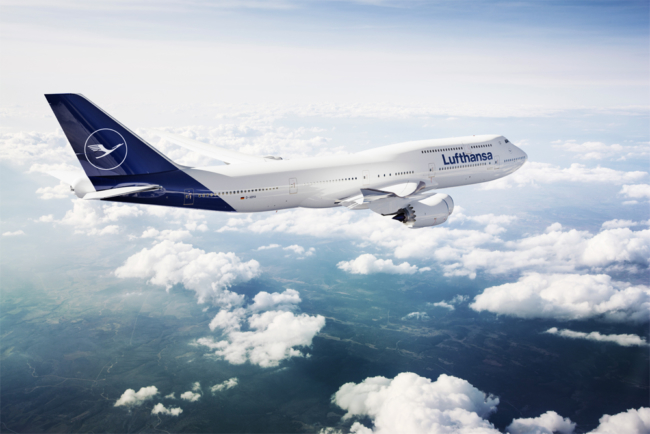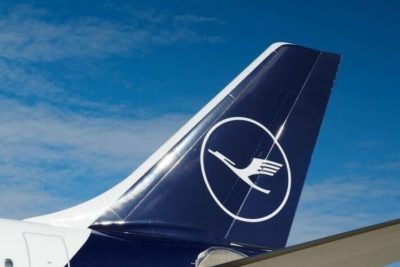Lufthansa on verge of bankruptcy without a bailout – official statement
Links on Head for Points may support the site by paying a commission. See here for all partner links.
Shockingly, it appears that Lufthansa has come to the end of the road.
Or, at least, it has come to the end of the road without an immediate bailout of up to €10 billion. Since this is Germany we’re talking about, you can be 100% certain that the money will be handed over.
It is, regardless, amazing to see one of Europe’s big three airline groups on the brink.

On Thursday evening, Lufthansa Group issued a trading statment.
There is no point looking at the Quarter 1 trading numbers because they are meaningless given the current situation. The key numbers relate to the cash position and its immediate liabilities.
The group currently has €4.4 billion of liquidity, which sounds OK.
Monthly cash burn, looking at Citi estimates published yesterday, is €984m. Not good.
That is just the beginning, however.
The current total due in the next few weeks for:
- ticket refunds
- bills due for payment
- interest and loans due for repayment
- payments on ‘out of the money’ fuel hedges
…. is estimated at €4.9 billion. The airline admits that it has no chance of borrowing additional money from banks. In plain English, the airline is insolvent.
In financial speak:
“However, in view of the business outlook, existing multibillion liabilities related to trade payables and refunds of cancelled tickets as well as upcoming repayments of financial liabilities, the Group expects a significant decline in liquidity in the coming weeks. The Group does not expect to be able to cover the resulting capital requirements with further borrowings on the market.”
But there is good news, unless you are a German, Swiss or Austrian taxpayer:
“The Group is therefore in intensive negotiations with the governments of its home countries regarding various financing instruments to sustainably secure the Group’s solvency in the near future. The Management Board is confident that the talks will lead to a successful conclusion.“

What is weird is that Lufthansa’s shares still appear to have value.
Last year the airline made €2 billion EBIT (profit before interest and tax) but is sitting on €9 billion of pension debt and €7 billion of net debt (pre-crisis, now far higher).
The Government bail-out is estimated at between €3 billion and €6 billion, although on Friday there were discussions of rounding it up to €10 billion. Add all this up and you are easily looking at €20 billion of liabilities.
The shares have no value unless the business is worth over €20 billion, and that isn’t clear even at €2 billion of EBIT. Heaven knows how many years it will take to get back to 2019’s €2 billion.
On Friday the airline said that it no longer expected to return to 2019 traffic levels until 2023, and would be firing 10,000 staff and dropping 100 aircraft as soon as it resumes flying. This is an increase on the estimate a couple of weeks ago when Lufthansa forecast 7,000 redundancies and the retirement of ’70+’ aircraft.
In case you’re wondering, below are the Citi estimates for how long the major European airline groups can last assuming that they continue to pay their bills, refund tickets and pay interest and debt as they become due:
- Air France-KLM – 3 months
- easyJet – 15 months
- IAG (British Airways) – 8 months
- Lufthansa – already technically insolvent
- Ryanair – 18 months
- Wizz Air – 22 months
PS. If you are not a regular Head for Points visitor, why not sign up for our FREE weekly or daily newsletters? They are full of the latest Avios, airline, hotel and credit card points news and will help you travel better. To join our 70,000 free subscribers, click the button below or visit this page of the site to find out more. Thank you.

How to earn Star Alliance miles from UK credit cards (July 2025)
None of the Star Alliance airlines currently have a UK credit card.
There is, however, still a way to earn Star Alliance miles from a UK credit card.
The route is via Marriott Bonvoy. Marriott Bonvoy hotel loyalty points convert to over 40 airlines at the rate of 3:1.
The best way to earn Marriott Bonvoy points is via the official Marriott Bonvoy American Express Card. It comes with 20,000 points for signing up and 2 points for every £1 you spend. At 2 Bonvoy points per £1, you are earning (at 3:1) 0.66 airline miles per £1 spent on the card.
SPECIAL OFFER: Until 15th July 2025, the sign-up bonus on the Marriott Bonvoy American Express Card is TRIPLED to 60,000 Marriott Bonvoy points. This would convert into 25,000 Avios or into 40 other airline schemes. It would also get you at least £300 of Marriott hotel stays based on our 0.5p per point low-end valuation. Other T&C apply and remain unchanged. Click here for our full card review and click here to apply.
There is a preferential conversion rate to United Airlines – which is a Star Alliance member – of 2 : 1 if you convert 60,000 Bonvoy points at once.
The Star Alliance members which are Marriott Bonvoy transfer partners are: Aegean, Air Canada, Air China, Air New Zealand, ANA, Asiana Airlines, Avianca, Copa Airlines, Singapore Airlines, TAP Air Portugal, Thai Airways, Turkish Airlines and United Airlines.
You can apply here.

Marriott Bonvoy American Express Card
60,000 points (to 15th July) and 15 elite night credits each year Read our full review



 Rob
Rob 





Comments (163)